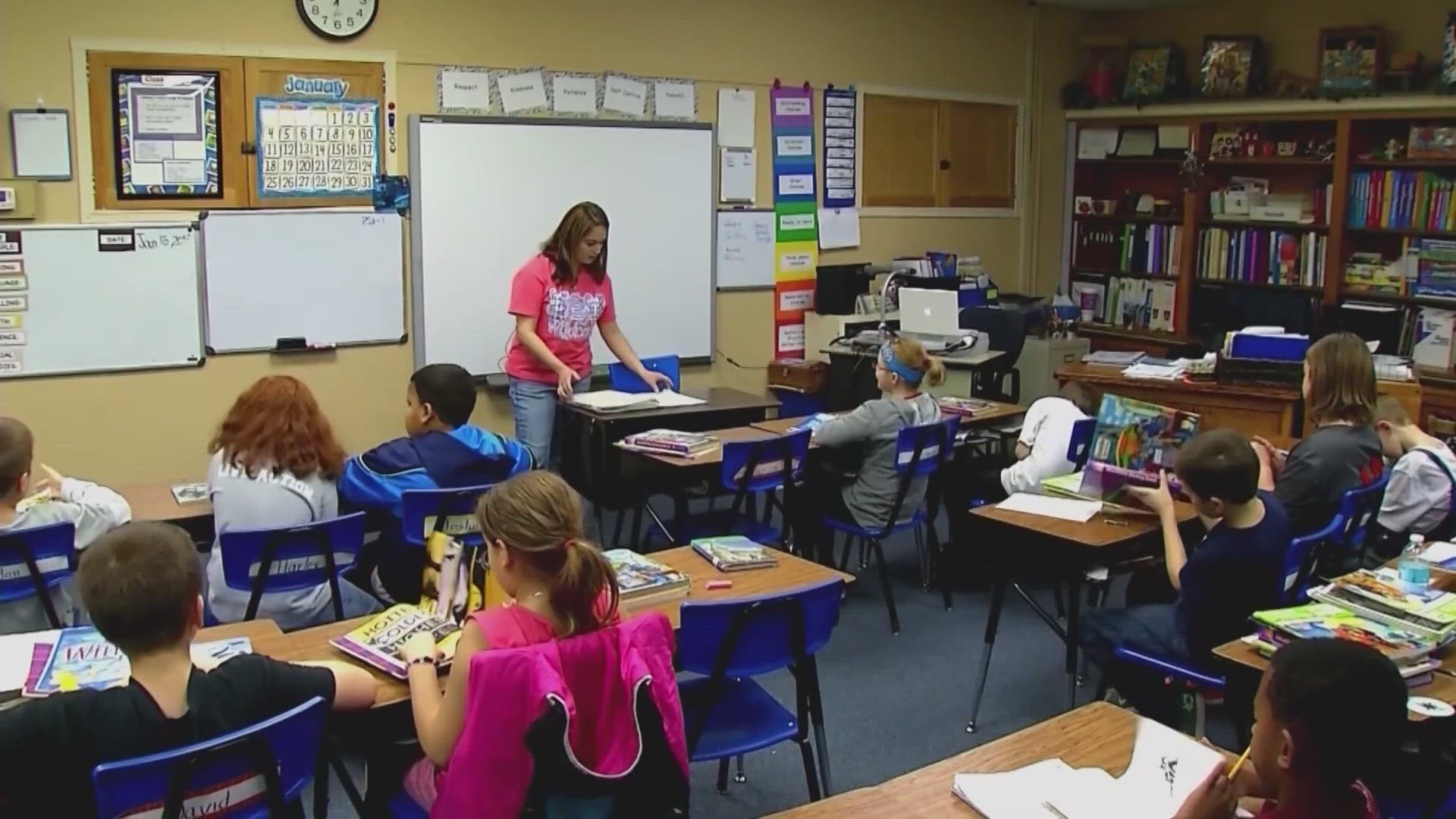SAN ANTONIO — A new special session kicked off Monday as Gov. Greg Abbott looks to get a new voucher plan, dubbed the "Education Savings Accounts Program," passed by both chambers of the Texas Legislature after the initiative failed to gain much momentum in the regular session.
On Tuesday, witnesses testified in the Senate Committee on Education that the plan would save parents, or defend schools, or even endanger football.
The voucher program itself is not the universal voucher approach that would have given a choice to every parent in Texas to enroll their child in public or private education. Instead, the roughly $500 million program will establish a lottery system that allowed parents to apply for the voucher. The Texas Comptroller would manage the program and delegate the administration to "Certified Educational Assistance Organizations."
Each voucher would still be $8,000 as before.
According to the state's bill analysis, the lottery system would prioritize 40% of the funding for "educationally disadvantaged" applicants, prioritize another 30% for applicants who are above the poverty line but still in a middle class category, and prioritize another 20% for applicants whose children have disabilities. The last 10% of the funding would be available to anyone.
The analysis says the funding would consist of "transfers, appropriations, gifts, grants, and donations, and any other money available for the purpose of the program."
Senator Brandon Creighton, who chairs the Education Committee, laid out the bill Tuesday morning and claimed the program is, in fact, not a voucher plan.
"It will offer these kids the opportunity to have the education they need," Creighton said. "Rather than it being voucher, which goes directly to the family, this is a savings account that, once approved, monies within it would be able to be transferred to an approved provider for an education and different services related to tutoring, transportation and uniforms. After tuition the funds can be used for other approved expenses."
Creighton later doubled down that the program is not a voucher, saying money wouldn't go through the family but instead be sent to an education program from the state.
Senator Royce West was not a fan of the bill.
"I'm against this. I'm going to vote against it as I've consistently done," West said. "Mr. Chairman, the genesis of voucher programs are based in racism. Are you aware of that?"
West said that voucher programs have been used in Texas in 1956 and provided a way to "separate Anglos from Hispanics and Blacks."
Creighton countered by saying the 2023 bill was about student success. West said he brought up the subject because he believed the bill needed to require the program to disclose demographic information about the people who are taking advantage of it.
"We are getting ready to give tax dollars to organizations to give out to students, but we don't know who the students are," West said. "In public schools, we know."
Witnesses came down on both sides of the issue.
"Passing school choice will take bravery. It will put students first instead of the interest of the teachers unions," said Valeria Gurr, with the American Federation for Children. "I can say this because I worked with a teachers union, and I left."
"This bill is creating another arm of the government. It is expanding the role of the government in education. We don't need any more government in Texas and we definitely don't need any more government in education," said Hollie Plemons, a Tarrant County Republican precinct chair. "I am a Republican against this bill."
San Antonio City Councilwoman Teri Castillo also testified to the committee Tuesday, saying public school systems already have enough on their plate to worry about with lack of affordable housing and charter school growth.
"Requirements for teachers at public schools vary on a case by case basis, meaning that private school teachers may not have a certification or students may not have to take the STAAR exam," Castillo said. "To use our public dollars to prop up private entities that serve a small select number of students while Texas public schools are ranked 40th in the nation in funding... it's not just irresponsible, but it is harmful to all Texans."

